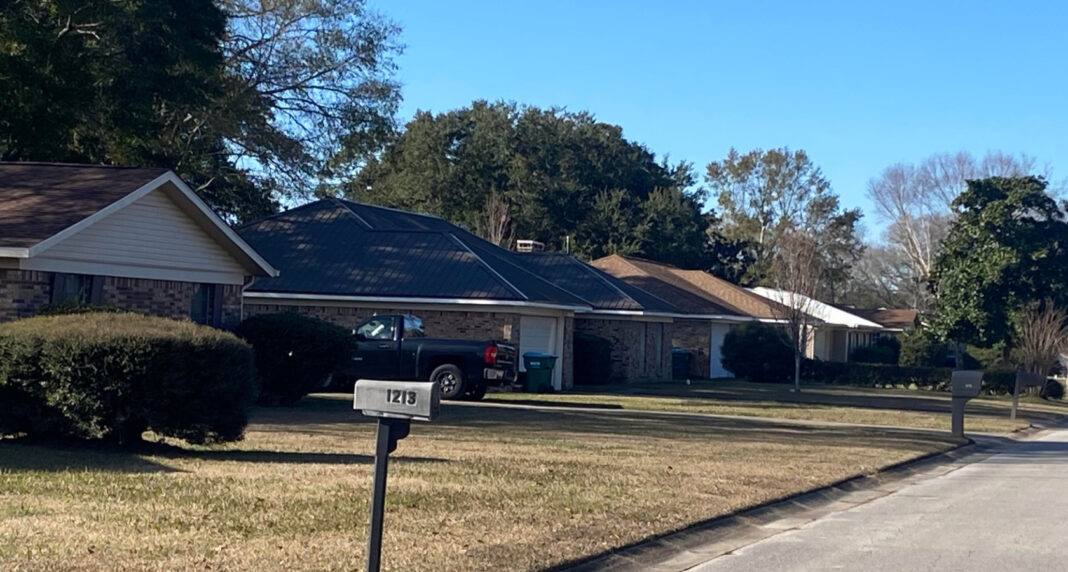OCEAN SPRINGS, MS — Alderman Rickey Authement is set to introduce a new ordinance proposal that would reform the city’s short-term rental (STR) regulations. While the proposed changes may satisfy public pressure from residents, debate about fairness and constitutionality is brewing.
The proposed ordinance would require applicants to secure signatures from more than 50 percent of property owners within 250 feet of the property, limit STRs to principal residential structures, and allow permit revocation based on police visits regardless of citations.
“This ordinance is really going to be a game changer,” Authement said. “It gives people a stronger voice in the process while ensuring we have rules in place that actually make sense for our neighborhoods.”
The Ward 2 Alderman believes the proposed ordinance will have the support of fellow Board members and is confident Mayor Kenny Holloway will approve the vote. “Oh yeah,” Authement said. “It’s an election year, he wouldn’t not sign something like that.”
While these changes aim to address widespread resident concerns over neighborhood disruptions, several provisions raise potential constitutional issues that could lead to legal scrutiny.
Discrimination and Sour Grapes Could Pose a Problem
The ordinance would require property owners to acquire the approval of neighbors as a qualification for an STR permit. Written permission from at least fifty percent of all neighboring property owners located within 250 feet would be needed.
The idea behind such a requirement is to ensure neighbors are okay with short term renters coming and going. Authement says he didn’t invent the idea. “It’s the same requirement used for bed and breakfasts in Ocean Springs,” he said. Regardless, the prerequisite could face legal challenges from property owners who get denied for being unable to acquire approval from neighbors.
There is a clause in the Fourteenth Amendment that guarantees all Americans get treated the same in regards to protections under the law. Authement’s proposed ordinance may take certain protections away from some.
By delegating the power to approve or deny permits to neighbors, the ordinance creates a system where property rights are not uniformly applied. For example, an applicant with supportive neighbors may face no barriers to approval, while another applicant in a similar neighborhood could be denied based on factors unrelated to zoning or public safety.
This type of delegation also opens the door to discriminatory practices. Neighbors could withhold approval based on personal biases, such as race, religion, or socioeconomic status, without providing any justification. Even if these biases are not blatantly stated, their impact could effectively deny equal access to the permitting process.
Could One Angry Teenager Ruin Businesses?
The ordinance also allows law enforcement visits to be considered grounds for denying or revoking permits, even in cases where no citations are issued. The provision could raise due process questions, depending on how it is enforced. The Fifth and Fourteenth Amendments guarantee individuals the right to fair treatment and trial before the government deprives them of liberties.
Using police visits as a basis for revocation — without requiring evidence of wrongdoing or formal charges — could violate this principle.
Neighbors with an axe to grind could repeatedly make erroneous complaints for noise or similar made up problems. Even if a police visit ends without a citation or arrest, the property owner could be subject to losing their STR permit, without proper due process. As written, the ordinance could make it possible for an angry kid in the neighborhood to cause a property owner to lose the right to rent out their home.
Why So Many Questionable Issues?
Alderman Authement’s proposal seems to be rooted with the good intention of satisfying resident concerns, but the final draft of the ordinance must adhere to the Constitution. That’s where the city attorney comes in.
When an alderman proposes a new ordinance in Ocean Springs, the process begins with the idea being submitted to the city. The city then forwards it to the law firm of Robert Wilkinson, which is contracted to act as city attorney. Attorneys at the firm, such as Will Norman in this case, draft the proposed ordinance and send it back to the alderman for comment.
Once finalized, the ordinance is added to the agenda for public discussion and eventual consideration by the Board of Aldermen.
However, some residents have raised concerns about the potential for conflicts of interest in this arrangement. The Wilkinson firm not only drafts ordinances and provides legal advice to the city but is also hired to defend the city if legal action arises from that advice. Some have raised concerns about potential conflicts of interest in such dual roles.
Ordinances with unresolved constitutional questions can raise suspicions about impartiality..
Many cities across the country have addressed this issue by enacting rules or ordinances prohibiting the city attorney from being hired to defend lawsuits stemming from their legal advice. Ocean Springs has not adopted such a policy, but the possibility has been floated as a way to ensure impartial legal guidance.
As Ocean Springs continues to debate how best to regulate STRs, Authement’s proposal will likely bring both support and scrutiny to the proposal — and perhaps questions about how the city approaches its legal advice.
Authement says his ordinance is scheduled to be included in the January 21st Board of Alderman meeting, which will be held at 6PM at City Hall. Public comments will be welcomed.


